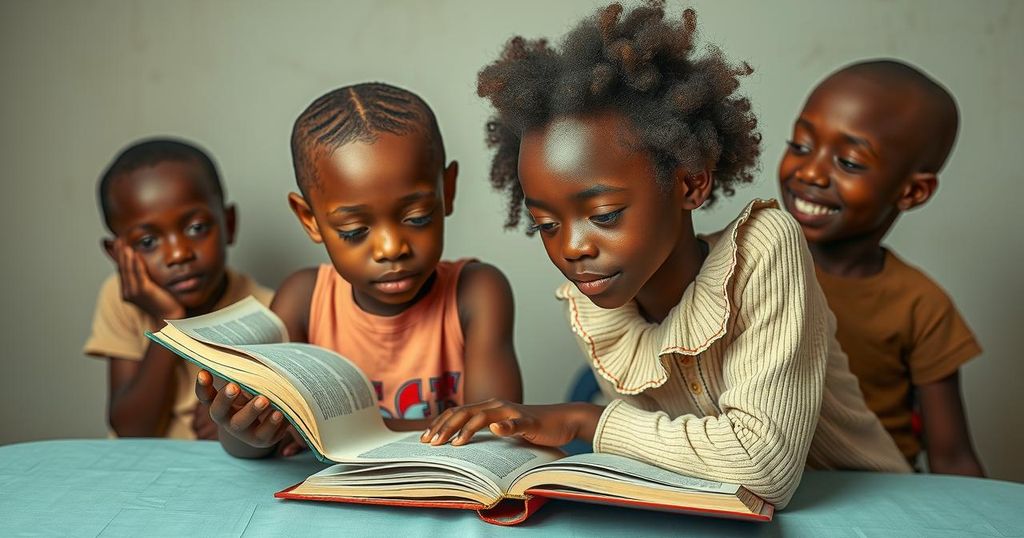Empowering Youth in DR Congo: Mlimani Publishing Brings Affordable Literature

In the Democratic Republic of Congo, the Mlimani publishing house seeks to empower youth through access to affordable literature. Amid economic challenges, local artists and activists have responded by producing culturally relevant books priced between $5 and $10, thus promoting reading in Goma. Through community workshops and discussions, they aim to reclaim narratives important to Congolese history, fostering a new literary culture.
In the turbulent region of Goma in the Democratic Republic of Congo, Martin Lukongo’s printing shop stands as a bastion for local literature. Unlike much of the impoverished nation where reading is often deemed a luxury, a dedicated collective of artists and activists has emerged to foster a love for books among youth. Recognizing the barriers presented by high costs and limited access to quality printing, they have established Mlimani, a local publishing house that aims to create affordable literature tailored to the community.
Despite the challenges, including frequent power outages and a scarcity of quality paper, Lukongo prints around 60 works daily, encompassing novels, essays, and more. While imported books are typically priced between $20 to $60, which is excessively high for most citizens, Mlimani’s publications are available for a mere $5 to $10, significantly increasing accessibility for young readers. This initiative has gained momentum since its founding, now promoting the writings of diverse authors who reflect the Congolese cultural experience, such as esteemed figures like Frantz Fanon and Denis Mukwege.
In a bid to engage potential readers, Mlimani collaborates with educational institutions and cultural centers to hold discussions and reading sessions, thereby creating a community around literature. On a recent occasion, students actively participated in a workshop discussing Congolese history, fostering a sense of connection to their roots while cultivating critical thought. Participants highlighted a gap in educational narratives, citing the emphasis on European history over African perspectives, which ignites a desire to reclaim their historical legacy and share it with future generations.
Inspired by Mlimani’s success, various local publishing initiatives have emerged, further contributing to a burgeoning literary culture among the youth. As Lukongo aptly noted, “You do not have to send your books elsewhere in order to sell them here.” This ethos not only encourages local authors to publish their works domestically but also instills a renewed hope for the future of literature in the Democratic Republic of Congo.
The Democratic Republic of Congo faces myriad challenges, notably ongoing conflict, poverty, and limited access to education and cultural resources. The region of Goma, specifically, has been marred by violence that has overshadowed cultural growth, including literature. However, there exists a vibrant community of artists and activists who aim to address the cultural deficit by establishing local publishing houses. Mlimani, among them, has spearheaded efforts to produce affordable literature that resonates with the youth, while simultaneously confronting the barriers posed by financial constraints and access to quality publishing.
The efforts of Mlimani and its allies depict a significant shift in the literary landscape of the Democratic Republic of Congo. By offering local authors the opportunity to publish affordable works and engage youth in discussions about their cultural heritage, they cultivate a collective identity grounded in intellectual discourse. This movement not only challenges the prevailing narrative of Congolese youth’s disinterest in reading but also fosters a sense of empowerment through education and literature. As more local publishers emerge, the future of Congolese literature appears promising, with the potential to inspire and educate generations to come.
Original Source: www.malaymail.com








